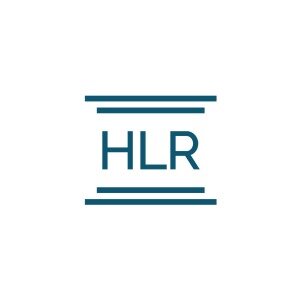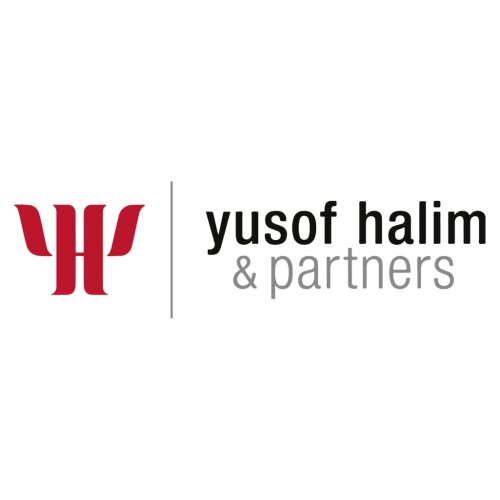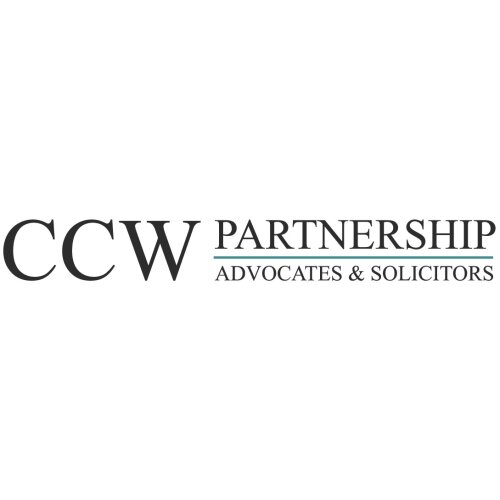Best Public-Private Partnerships (PPP) Lawyers in Brunei
Share your needs with us, get contacted by law firms.
Free. Takes 2 min.
Or refine your search by selecting a city:
List of the best lawyers in Brunei
About Public-Private Partnerships (PPP) Law in Brunei
Public-Private Partnerships (PPP) in Brunei refer to cooperative arrangements between government entities and private sector companies to finance, build, and operate projects or services that would traditionally be provided by the public sector. PPPs have become increasingly important in supporting Brunei’s economic development and aligning with the country’s vision for sustainable growth. These partnerships are commonly used in sectors such as infrastructure, utilities, healthcare, and education, enabling the government to leverage private sector expertise, efficiency, and capital.
The legal and regulatory landscape for PPPs in Brunei continues to evolve, influenced by international best practices and domestic priorities. The Brunei government encourages responsible and strategic partnerships to ensure projects deliver value while managing risks for all parties involved.
Why You May Need a Lawyer
Engaging in a Public-Private Partnership is a complex legal process with significant financial and operational implications. Below are common scenarios where legal assistance is highly valuable:
- Drafting and reviewing PPP contracts to ensure clarity and risk allocation
- Negotiating terms between public authorities and private consortiums
- Performing due diligence on potential partners and projects
- Ensuring compliance with local and international legal requirements
- Assisting with dispute resolution, claims, or contract enforcement
- Advising on structuring, financing mechanisms, and exit strategies for PPPs
- Guiding on land rights, regulatory approvals, and procurement obligations
- Interpreting government incentives, policies, and tax implications
A qualified lawyer can help you protect your interests, minimize risks, and ensure the long-term success of your PPP arrangement in Brunei.
Local Laws Overview
Brunei does not have a single comprehensive PPP law but relies on a framework of statutes, regulations, and guidelines governing key aspects of PPP projects. Key points include:
- The Public Private Partnership (PPP) Guidelines provide procedural steps for identifying, approving, and managing PPP projects
- The Contracts Act (Chapter 106) sets the legal foundation for enforceability of PPP agreements
- The Land Code (Chapter 40) addresses land use, acquisition, and lease issues relevant for infrastructure projects
- The Brunei Investment Agency Act and other investment-related laws may impact financing and governance of PPP ventures
- Government tenders for PPP projects are managed through the Ministry of Finance and Economy, which oversees procurement standards and transparency
- Sectors like energy, water, healthcare, and education may have additional sector-specific regulatory requirements or approvals
- Anti-corruption and anti-bribery laws are rigorously enforced to promote transparency and fairness
Due to this regulatory complexity, seeking informed legal advice before committing to a PPP project in Brunei is recommended.
Frequently Asked Questions
What is a Public-Private Partnership (PPP)?
A PPP is a collaborative agreement between a government and private company to deliver a public service or infrastructure. Both parties share risks and rewards stipulated by contract.
Are PPPs common in Brunei?
PPPs are increasingly promoted in Brunei, particularly in areas like roads, utilities, healthcare, and education, as part of the nation’s economic diversification efforts.
What laws govern PPPs in Brunei?
There is no single PPP law, but a collection of guidelines, the Contracts Act, Land Code, procurement rules, and sector-specific regulations apply to PPP projects.
Do PPP projects require government approval?
Yes, all PPP projects in Brunei require various government reviews and approvals, including financial viability assessments and regulatory compliance checks.
Can foreign companies participate in PPPs in Brunei?
Foreign companies are allowed, though there may be restrictions depending on the project sector. Localization requirements and joint ventures with local entities are often encouraged.
How are risks allocated in a PPP?
Risks in PPPs are typically allocated based on which party can best manage them. This is detailed in the PPP contract, covering construction, financing, operational and regulatory risks.
What happens if a dispute arises?
PPP contracts usually include mechanisms for dispute resolution such as negotiation, mediation, or arbitration, often in accordance with Brunei law or international standards.
Are there incentives for PPP projects?
The government may offer incentives such as land grants, tax benefits, or customs exemptions, subject to negotiation and eligibility under current policies.
How long do PPP agreements last?
PPP agreements can range from 5 to 30 years or longer, depending on the nature and scale of the project and the terms negotiated between the parties.
Do I need a lawyer to engage in a PPP?
While not legally mandatory, engaging a lawyer is highly recommended. Legal counsel helps ensure compliance, effective negotiation, and risk mitigation throughout the PPP lifecycle.
Additional Resources
Several organizations and government bodies support PPP activities in Brunei. These include:
- Ministry of Finance and Economy - Responsible for PPP policy, procurement, and project approvals
- Brunei Economic Development Board (BEDB) - Provides support for investment and business development, including PPPs
- Public-Private Partnership Unit (if applicable) - For guidance on procedures and proposals
- Chamber of Commerce and Industry - Helpful for connecting with local business partners
- Legal firms experienced in infrastructure, project financing, and governmental contracts
- Relevant sector ministries, such as the Ministry of Health or Ministry of Development, for sector-specific regulations
Consulting these resources early can help clarify requirements and smooth the process for your PPP initiative.
Next Steps
If you are considering involvement in a Public-Private Partnership in Brunei, the following steps are recommended:
- Conduct preliminary research on the sector and type of PPP project you are interested in
- Establish contact with relevant government agencies to understand project pipelines and procedures
- Consult with a qualified lawyer who specializes in PPP, investment, and commercial law in Brunei
- Prepare detailed business plans and proposals for review
- Ensure full understanding of regulatory, financial, and operational requirements
- Participate in public tender or application processes as required
Early legal advice and thorough preparation can maximize your chances of success and minimize potential setbacks when navigating the PPP landscape in Brunei.
Lawzana helps you find the best lawyers and law firms in Brunei through a curated and pre-screened list of qualified legal professionals. Our platform offers rankings and detailed profiles of attorneys and law firms, allowing you to compare based on practice areas, including Public-Private Partnerships (PPP), experience, and client feedback.
Each profile includes a description of the firm's areas of practice, client reviews, team members and partners, year of establishment, spoken languages, office locations, contact information, social media presence, and any published articles or resources. Most firms on our platform speak English and are experienced in both local and international legal matters.
Get a quote from top-rated law firms in Brunei — quickly, securely, and without unnecessary hassle.
Disclaimer:
The information provided on this page is for general informational purposes only and does not constitute legal advice. While we strive to ensure the accuracy and relevance of the content, legal information may change over time, and interpretations of the law can vary. You should always consult with a qualified legal professional for advice specific to your situation.
We disclaim all liability for actions taken or not taken based on the content of this page. If you believe any information is incorrect or outdated, please contact us, and we will review and update it where appropriate.
Browse public-private partnerships (ppp) law firms by city in Brunei
Refine your search by selecting a city.














